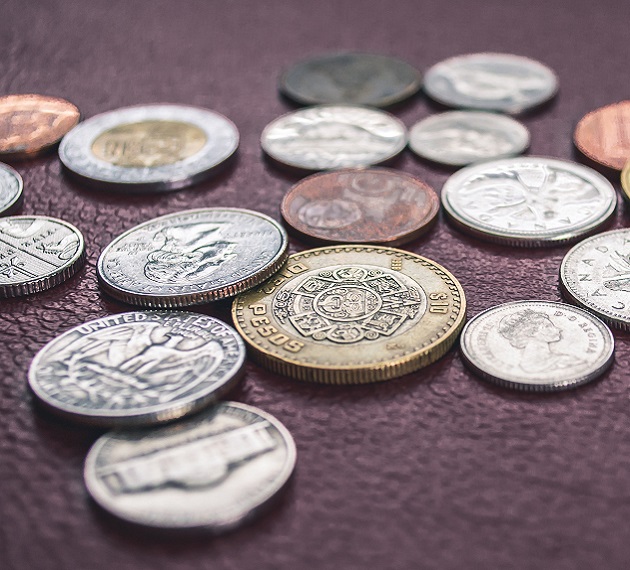Australia has a well-established and thriving gambling industry, deeply embedded in its culture–particularly in relation to sports and racing–and gambling is a significant contributor to the national economy. Australians lose approximately AUD $25 billion each year on legal forms of gambling, marking the highest per capita gambling losses in the world. Across the country, there are around 200,000 poker machines, which alone generate over AUD $12 billion annually. In New South Wales, there is approximately one poker machine for every 75 people. Nationally, 72.8% of adults gamble each year, with 33% doing so weekly. Poker machines are more common in Australian suburbs than public toilets, ATMs, or post boxes.
Horse racing is so ingrained in Australian culture that it even features its own page in the national passport. This widespread normalization of gambling as a leisure activity contributes to high participation rates across various forms of gambling, including sports betting, racing, and casinos. The industry operates under a robust regulatory framework aimed at promoting responsible gambling and protecting consumers. Reflecting the country’s cultural diversity, many Australian casinos offer services in multiple languages–such as English, Mandarin, and Vietnamese–highlighting the significant contribution of Vietnamese gamblers to overall revenue.
Conversely, gambling in Vietnam has been historically prohibited for citizens and is culturally linked to crime. Despite these restrictions, there is a robust interest in gambling, particularly online, with 91% of illegal gamblers placing bets through mobile apps or the internet. This has led to a pervasive underground gambling culture, with access to offshore online platforms via Virtual Private Networks (VPNs) being widespread, as well as large casino markets in neighboring countries, causing significant capital flight from Vietnam. Vietnamese citizens can legally gamble, but only at specific casinos in Phu Quoc, and they must meet strict criteria: being 21 or older, earning a monthly income of at least VND 10 million, having family permission, and paying an entry tax (being an entry ticket) of VND 1 million for 24 continuous hours/person or VND25 million/month/person. There were previous greyhound racing tracks in Ho Chi Minh City and Vung Tau, but these were shut down in March 2023 and have remained out of operation ever since.
Legal Frameworks
Australia maintains a comprehensive and well-structured regulatory framework for gambling, administered at both the federal and state levels. Online gambling operators must be licensed to offer services domestically, while strict jurisdictional limitations are imposed on offshore providers. The regulatory system incorporates a strong focus on responsible gambling, consumer protection, and harm minimization. Enforcement mechanisms are further supported by the Criminal Code, which criminalizes unlicensed gambling operations and certain advertising practices. This multi-layered approach reflects a mature regulatory environment aimed at balancing economic interests with public health considerations.
Vietnam, by contrast, adopts a highly restrictive legal stance toward gambling, with most forms prohibited for its citizens. Legal exceptions include state-run lotteries and licensed casinos, which primarily cater to foreign nationals. Notably, there is no single comprehensive law governing gambling in Vietnam; instead, the sector is regulated through a series of decrees. Decree 03/2017/ND-CP remains the primary legal instrument for casino operations, while Decree 147/2024/ND-CP bans casino-style mobile applications, and Decree 23/2024/ND-CP introduces a legal framework for sports betting.
Gambling-related offenses in Vietnam are subject to strict penalties under the Criminal Code 2015. Per Article 321, individuals involved in illegal gambling with stakes ranging from VND 5 million to under VND 50 million may face community sentences or imprisonment for 6 to 36 months. In more severe cases–such as when gambling involves internet or electronic means, or the stake is at least VND 50 million—the penalty can escalate to 3 to 7 years’ imprisonment. Furthermore, individuals caught organizing gambling or operating gambling dens face penalties ranging from fines of VND 50 million to VND 300 million and up to 10 years’ imprisonment under Article 322. Even so, offshore gambling continues to operate actively, underscoring enforcement challenges and the need for clearer legislative direction.
Vietnam’s Shifting Policy and Rationale
Vietnam stands at a critical juncture as it reconsiders its approach to gambling regulation amid growing concerns over the substantial revenue lost to offshore operators. Hoang Ngoc Nhat, Chairman of Thien Phuc Joint Stock Company, estimates that Vietnamese gamblers spend between US$5–10 billion annually, with football betting accounting for the majority. However, much of this spending currently flows overseas, by passing domestic taxation and regulatory oversight. In response, the Vietnamese government is shifting its focus toward regulating the sector–not to promote gambling, but to capture lost revenue, mitigate social harms, and assert greater control over a growing underground market.
Recent regulatory developments underscore this strategic pivot. Notably, Decree 23/2024/ND-CP introduces a formal bidding process for companies seeking to offer international football betting, marking a move toward a more structured and transparent licensing regime. The government’s objective is to attract foreign investors and encourage the establishment of legal gambling entities within Vietnam, thereby curbing capital flight and generating tax revenue. This evolving policy direction reflects Vietnam’s broader economic transition from a centrally planned system to a more market-oriented model, perhaps signaling a willingness to adapt to shifting fiscal and social priorities.
Opportunities for Australian Operators
This evolving regulatory environment perhaps presents significant opportunities for Australian gambling corporations to engage with and support the development of Vietnam’s emerging legal gambling sector. One key area lies in promoting responsible gambling practices through consulting services, the development of regulatory frameworks, and the provision of specialized training programs. Australian operators, with their established track record in consumer protection and harm minimization, seem to be well-positioned to assist Vietnamese casinos and online platforms in implementing robust responsible gambling measures that align with international best practices.
Sports betting, in particular, offers substantial growth potential, with market estimates exceeding USD $1 billion in annual revenues. However, participation in this segment will require navigating stringent regulatory requirements, including licensing and compliance protocols introduced under Decree 23/2024/ND-CP. Beyond direct operations, Australian firms can also leverage their strengths in technology and software–particularly in areas such as cybersecurity, data analytics, privacy, and responsible gambling tools–to support Vietnamese operators in building secure and sustainable gambling infrastructures.
Challenges and Considerations
One of the most immediate barriers for foreign gambling operators entering the Vietnamese market is the country’s highly restrictive stance on gambling-related marketing. Most forms of promotion and advertising are prohibited, including direct and indirect advertising through television, social media, and outdoor signage. This creates a difficult environment for foreign brands to establish visibility and recognition. As a result, Australian companies may need to rely on more subtle approaches such as word-of-mouth, partnerships with local influencers, or informational campaigns that do not explicitly promote gambling.
Another area of concern is the legal ambiguity surrounding arrangements that involve travel for Vietnamese nationals to gamble abroad. While not explicitly illegal, such activities may come under regulatory scrutiny if deemed to encourage or promote gambling, raising reputational and compliance risks for operators. This is especially relevant given the growing number of Vietnamese citizens who gamble overseas, particularly in regional hubs such as Cambodia, Macau and Australia. Gambling abroad falls outside the purview of Vietnam’s domestic regulatory framework, meaning Vietnamese bettors engaging in cross-border gambling are not afforded the same consumer protections, responsible gambling measures, or legal recourse as they would be under a regulated domestic regime.
The most complex challenge for foreign operators, however, lies in Vietnam’s stringent financial controls. The remittance of gambling-related revenue to overseas entities is subject to close oversight by the State Bank of Vietnam. Foreign exchange transactions, especially those related to gambling, are tightly monitored and regulated, creating potential operational and financial bottlenecks for international companies seeking to repatriate profits or fund local operations. It is unlikely that the overseas remittance of gambling debts or funding to support gambling would be approved by the State Bank.
Potential Vietnamese Reforms and Future Outlook
The future of gambling regulation in Vietnam remains uncertain but gambling is attracting increasing attention from policymakers, investors, and industry stakeholders. Further reforms are anticipated as the government seeks to modernize and streamline the regulatory landscape, aiming to balance the growing demand for gambling services with the need for effective oversight and consumer protection. Possible reforms could involve a gradual easing of restrictions on Vietnamese citizens’ participation in regulated gambling activities—such as expanded access to licensed online platforms or selective approval of land-based casinos. While such measures could stimulate economic growth, promote tourism, and reduce reliance on unregulated markets, they also raise important considerations around the management of gambling-related harm.
As part of this transition, increased regulatory oversight would be expected, particularly in the areas of monitoring and enforcement related to both domestic and offshore online gambling operations. This will require the development of a robust digital infrastructure capable of addressing the complexities of modern gambling platforms. Vietnam could benefit from adopting best practices from established regulatory models, such as Australia’s, particularly in areas like digital monitoring, licensing, and consumer safeguards.
Crucially, a strong emphasis on responsible gambling will need to underpin any future expansion. Drawing on Australia’s experience, Vietnam can implement early-stage frameworks that integrate harm minimization, public education, and targeted intervention. This includes investment in public awareness campaigns, self-exclusion tools, early intervention mechanisms, and support services for at-risk individuals. By embedding responsible gambling principles into its regulatory framework from the outset, Vietnam has the opportunity to avoid common pitfalls experienced by other emerging markets and position itself as a regional leader in sustainable and well-regulated gambling development.
In conclusion, the Vietnamese gambling market presents a complex mix of opportunity and challenge for Australian operators. Realizing its potential will require not only a deep understanding of Vietnam’s evolving legal and regulatory framework but also a long-term commitment to compliance, transparency, and social responsibility. As the government moves potentially toward a more structured and regulated gambling environment, Australian companies have an opportunity to position themselves as trusted partners by demonstrating leadership in responsible gambling, regulatory compliance, and technological innovation. Success in this emerging market will depend on strategic engagement, cultural sensitivity, and the ability to align commercial objectives with Vietnam’s broader policy goals of harm minimization and sustainable economic development.
Gabriel Tambakis







